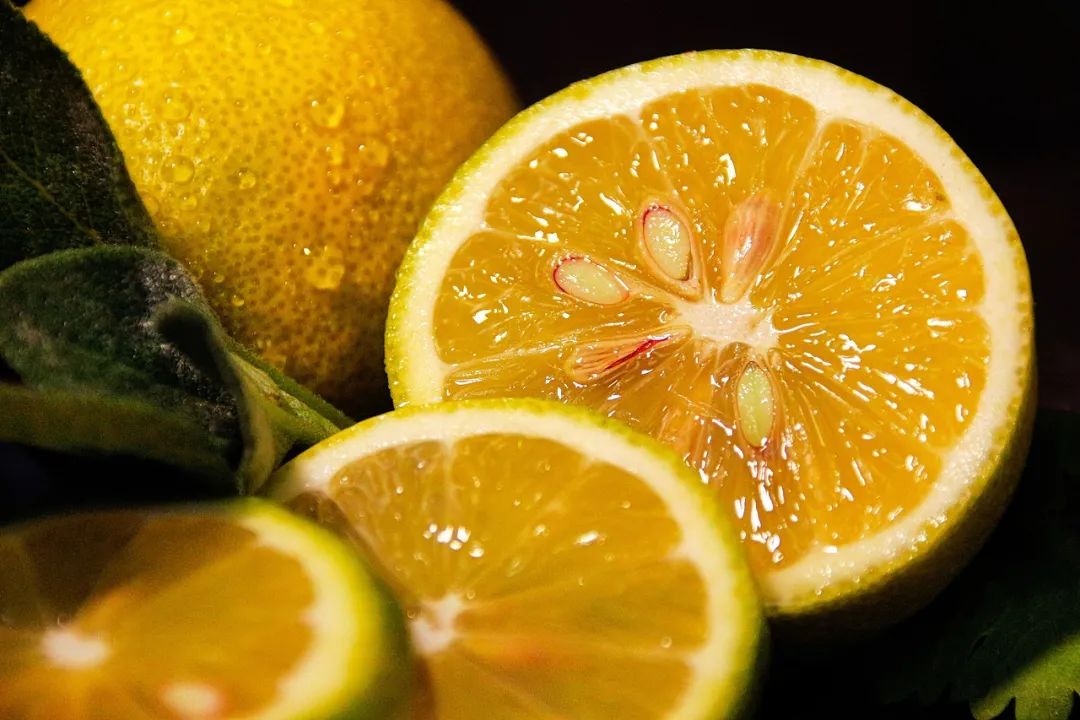Many people have specific dietary preferences; some have a penchant for sour flavors, others love sweets, while some cannot resist spicy foods. Traditional Chinese Medicine (TCM) recognizes five flavors in food—sour, bitter, sweet, spicy, and salty—each corresponding to one of the five organs: sour nourishes the liver, bitter nourishes the heart, sweet nourishes the spleen, spicy nourishes the lungs, and salty nourishes the kidneys. However, a strong preference for one flavor may reflect health issues in a corresponding organ. Overindulgence in any of the five flavors can also affect the health of the organs. Therefore, to eat for health, one must maintain moderation in their flavor preferences.
For those who prefer sour flavors, it is important to soothe the liver and regulate the spleen.

The liver is associated with wood, and sour flavors enter the liver. Sour flavors are known for their astringent and constricting properties, which can nourish the liver. Moderate consumption of sour foods can nourish yin, generate fluids, strengthen the spleen and stomach, and nourish the liver. However, excessive sourness can disrupt the normal physiological functions of the liver, spleen, and stomach, potentially leading to digestive system diseases.
The Huangdi Neijing states: “If the flavor is too sour, the liver qi will be depleted, and the spleen qi will be exhausted.” A strong preference for sour flavors can lead to stagnation of liver qi, causing qi to become obstructed, which can then overwhelm the spleen, resulting in spleen qi deficiency. The spleen governs the muscles, and its manifestation is in the lips; excessive sourness can lead to thickened and shriveled muscles, loss of luster in the lips, and even lip eversion.

Health Recommendations: ① Maintain emotional balance and a cheerful spirit to facilitate the flow of liver qi; pay attention to the care of the spleen and stomach to strengthen the foundation of health. Regularly practice moxibustion on the Taichong (Liver 3), Zusanli (Stomach 36), Zhongwan (Ren 12), and Guanyuan (Ren 4) points to help soothe the liver and regulate the spleen.
② Those who prefer sour flavors can choose fresh sour fruits and vegetables, such as citrus, pomegranate, oranges, tomatoes, grapes, and hawthorn, to satisfy their taste while also supplementing vitamin C to enhance appetite and promote digestion.
③ Consumption of pickled vegetables, sour spicy noodles, and other sour vinegar products should be reduced to avoid excessive stimulation of the gastrointestinal tract, which can lead to digestive dysfunction and other gastrointestinal diseases.
For those who prefer bitter flavors, focus on regulating the heart, spleen, and lungs.

The heart is associated with fire, and bitter flavors enter the heart. Bitter flavors are known for their ability to drain fire, dry dampness, and consolidate yin. Appropriate intake of bitter foods can clear excess heart fire, alleviate irritability, dispel summer heat, dry dampness, and promote bowel movements.
The Huangdi Neijing states: “If the flavor is too bitter, the spleen qi will not be moistened, and the stomach qi will be thickened.” Excessive consumption of bitter foods can lead to an overabundance of spleen earth, causing stagnation and obstruction, which can result in the accumulation of fluids and qi, leading to symptoms such as belching, acid reflux, and abdominal distension. Overindulgence in bitter flavors can also damage heart qi, affecting appetite; bitter foods are often cold in nature, and excessive consumption can lead to coldness in the spleen and stomach, resulting in abdominal pain and loose stools. Additionally, a preference for bitter flavors can harm lung metal, leading to dry skin and hair loss.

Health Recommendations: ① Excessive preference for bitter flavors can deplete heart qi and damage both lung and spleen. Those with qi deficiency due to excessive bitterness should focus on nourishing heart qi, using moxibustion on the Xinshu (Heart 7), Shanzhong (Ren 17), Feishu (Lung 1), and Guanyuan (Ren 4) points to invigorate spleen qi and harmonize heart spirit and blood.
② Those who prefer bitter flavors can consume them seasonally, especially during hot summer months; or based on individual conditions, those with phlegm-dampness, obesity, or constipation can appropriately consume bitter melon, lotus seeds, and dandelion.
③ Tea and coffee are popular bitter beverages that can invigorate and accelerate metabolism; moderate consumption is acceptable, but one should avoid becoming overly addicted.
For those who prefer spicy flavors, it is essential to harmonize the lungs and liver.

The lungs are associated with metal, and spicy flavors enter the lungs. Spicy flavors are known for their dispersing, blood-activating, and qi-moving properties. Normal consumption can disperse wind-cold, promote lung qi, move qi and resolve stagnation, and eliminate dampness from the spleen and stomach.
The Huangdi Neijing states: “If the flavor is too spicy, the tendons will become slack, and the spirit will be disturbed.” Excessive consumption of spicy foods can damage the tendons and lead to mental fatigue. The liver is associated with the tendons, and its manifestation is in the nails; excessive spicy consumption can harm liver wood, leading to tight tendons and dry nails. Overconsumption can also lead to excessive lung qi dispersal, resulting in excessive sweating, qi depletion, and fluid loss, which can leave one feeling empty and fatigued, with common symptoms including lethargy, dizziness, and numbness. A preference for spicy flavors can also lead to gastrointestinal diseases and anal conditions such as hemorrhoids.

Health Recommendations: ① Excessive preference for spicy flavors can harm lung qi and deplete lung yin. According to the theory of the five elements, lung damage can deplete liver yin; those who prefer spicy foods should practice moxibustion on the Ganshu (Liver 14), Feishu (Lung 1), Zhongwan (Ren 12), and Shenque (Ren 8) points to achieve the effects of nourishing qi, moistening the lungs, and harmonizing the lungs and liver.
② Those who prefer spicy flavors may experience dry mouth, throat swelling, and other symptoms. They should reduce consumption of common spicy foods such as chili peppers, garlic, and ginger, while adding moistening and cooling ingredients like yam, white radish, and tremella to their dishes to achieve the goal of nourishing yin and moistening the lungs.
For those who prefer sweet flavors, it is advisable to harmonize the spleen and kidneys.

The spleen is associated with earth, and sweet flavors enter the spleen. Sweet flavors are known for their nourishing, harmonizing, and soothing properties; moderate consumption can nourish the qi of the spleen and stomach.
The Huangdi Neijing states: “If the flavor is too sweet, heart qi will be short of breath, the complexion will darken, and kidney qi will be unbalanced.” A strong preference for sweet foods can lead to stagnation of spleen qi, causing heart qi to become obstructed, resulting in shortness of breath and a darkened complexion, further damaging kidney qi and leading to imbalance. The kidneys govern bone marrow, and their manifestation is in the hair; excessive sweetness can deplete kidney water, leading to bone pain and hair loss. Overconsumption can also cause stagnation in the spleen and stomach, leading to food accumulation and abdominal discomfort, potentially resulting in diabetes, cavities, and obesity.

Health Recommendations: ① Those who prefer sweet flavors may develop spleen and kidney deficiencies over time; they should first correct their sweet cravings and regularly practice moxibustion on the Guanyuan (Ren 4), Mingmen (Ren 4), Qihai (Ren 6), and Zhongwan (Ren 12) points to help regulate the spleen and stomach and nourish kidney qi.
② Those who prefer sweet flavors can choose grains, legumes, and fruits and vegetables that are sweet but low in sugar as staples, such as corn, yam, red beans, and pumpkin. Grains provide a sweet taste while being rich in dietary fiber, promoting intestinal peristalsis and aiding digestion. Legumes are rich in protein, amino acids, and B vitamins, which help enhance the body’s immunity.
③ Consumption of sweet and greasy foods such as milk tea, cakes, and desserts should be reduced, as they often contain trans fats, and excessive intake may lead to endocrine, cardiovascular, and respiratory diseases.
For those who prefer salty flavors, be cautious of kidney balance.

The kidneys govern water, and salty flavors enter the kidneys. Salty flavors are known for their ability to soften hardness, nourish the kidneys, moisten dryness, and promote urination, providing certain nourishing effects on the kidneys. Moderate consumption can nourish the kidneys, moisten dryness, strengthen the waist and bones, cool the blood, promote bowel movements, and enhance vitality.
The Huangdi Neijing states: “If the flavor is too salty, the bones will be fatigued, the muscles will shorten, and heart qi will be suppressed.” Excessive consumption of salty foods can damage the entire skeletal system, leading to muscle shortening, and can also weaken heart qi. The heart governs blood vessels, and its manifestation is in the face; excessive salt can lead to kidney water overpowering heart fire, inhibiting the heart’s function in governing blood vessels, resulting in poor circulation and changes in facial complexion due to lack of moisture. Overconsumption can damage the kidneys, leading to kidney dysfunction, with typical symptoms including fatigue, lower back pain, and reduced reproductive capacity.

Health Recommendations: ① Excessive preference for salty flavors can harm kidney qi and deplete kidney essence, leading to an imbalance of heart fire. Those who prefer salty foods should focus on nourishing kidney qi, replenishing essence, and clearing heart fire, using moxibustion on the Yongquan (Kidney 1), Guanyuan (Ren 4), and Laogong (Pericardium 8) points to achieve a balance of water and fire and harmonize the heart and kidneys.
② Those who prefer salty flavors should maintain a light diet, consciously reduce salt intake, and keep daily salt consumption below 6 grams to prevent a vicious cycle of “the saltier, the more one eats.”
③ Individuals with kidney dysfunction should immediately correct their preference for salty foods and adopt a low-salt diet; those with liver dysfunction, high blood pressure, or heart disease should also reduce salt and salty food intake in their daily lives.
Having read this, I hope everyone understands: Properly balancing the five flavors in diet leads to balanced organs and good health!
Note:This account aims to promote TCM culture; the TCM knowledge mentioned in this article is for learning and exchange purposes only.
WeChat has been updated! If you neither starred me nor liked or “viewed” my articles,the system will assume you do not wish to receive updates on herbal knowledge, and ultimately,you will not receive our article updates.
End of article. Thank you for your patience in reading. If you find it interesting, please click “ like” and “~
like” and “~
As the saying goes, “In a group of three, there must be a teacher for me.” To facilitate the integration and exchange of knowledge among TCM practitioners, we are preparing to establish a discussion group on herbal knowledge. If you wish to join, please add the editor on WeChat and specify your identity. The editor invites you to join the group.


